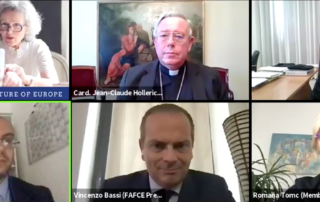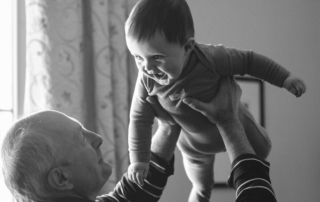European Union
Although family-policies are a national competence and greatly vary across the 27 EU Member-States, the European Union can play an important role in promoting family-friendly policies. FAFCE supports in this direction the daily work of the different EU bodies:
- European Parliament: composed of representatives directly elected by the EU citizens, it participates to produce the EU legislation with the European Council and the European Commission.
- European Council: composed of the EU heads of state or governments, it defines the EU’s political directions and priorities.
- European Commission: composed of designated Commissioners led by a President, it is responsible for proposing legislation, implementing decisions, upholding the EU treaties and managing the day-to-day business of the EU.
- Council of the European Union: composed of Ministers from each Member-States, it meets regularly to discuss specific points on the EU legislation and coordinate EU policies.
- Economic and Social European Committee: composed of representatives of civil society (workers’ and employers’ organisation, interest groups, etc.), this EU advisory body issues opinions on EU issues.
- Committee of the Regions: composed of locally and regionally elected representatives, this EU advisory body produces opinions on EU legislation that directly impact regions and cities.
EU Strategy on the Rights of the Child & European Child Guarantee: the European Commission acknowledges the role of parents and families
30 March 2021 On the 24th of March 2021, the European Commission published the EU Strategy on the Rights of the Child and proposed a Council recommendation on a European Child Guarantee. The two documents aim to offer a
EU Budget 2022: The European Parliament emphasises the need for demographic and family policies
29 March 2021, Last week, the European Parliament adopted a resolution on "Guidelines for the 2022 Budget - Section III" (Rapporteur: Karlo Ressler, EPP, Croatia), which calls for the inclusion of demographic and family policies in the
Decreasing birth rates in Europe: is it really the choice of parents?
Brussels, 10 March 2021 Europe faces a clear pattern of decreasing birth rates over the past decades. In 2018, the average number of childbirths in the EU was 1.55 per woman. It is, as stated by the European Commission
Vision and commitment of FAFCE against pornography: interview for the Italian association PURIdiCUORE
Brussels, 3 March 2021 On 18 February 2021, Bénédicte Colin, FAFCE Project Manager, shared the work of FAFCE against pornography with the Italian association PURIdiCUORE, also dedicated to tackle the challenges of pornography. The association promotes the integrity in
European Day for a work-free Sunday: Joint statement of the European Sunday Alliance
Brussels, 3 March 2021 On the European Day for a work-free Sunday, FAFCE recalls the need for a weekly common day of rest, crucial for the social cohesion of our communities and the intergenerational bond within families. FAFCE is
FAFCE-COMECE joint Webinar: “Without intergenerational solidarity, there is no real human, economic and social development”
Brussels, 2nd of March 2021 On Monday, March 1st, 2021, FAFCE and the Commission of the Bishops' Conferences of the European Union (COMECE) jointly hosted a conference to flesh out the implications of their recent document, entitled The Elderly
News from our Members: discussions in Ireland on the introduction of euthanasia and assisted suicide
Brussels, 25 February 2021 Family Solidarity, our FAFCE Member in Ireland, recently presented a submission to the Committee on Justice of the Oireachtas (the National Parliament of the Republic of Ireland), targeting the law proposal “Dying with Dignity Bill 2020”,
Non-performing loans: the impact of the pandemic on families and credit
The pandemic created disastrous consequences for the global and European economy. Many families and businesses experience financial difficulties, and fail to reimburse their loans, thus creating issues of non-performing loans. The non-performing loans are bank loans that are[1] subject
INVITATION | FAFCE-COMECE joint Webinar on “The Elderly and the Future of Europe” (1st March 2021, 15.00 – 16.15 CET)
Following the publication of a joint Reflexion Paper on "The Elderly and the Future of Europe", the Federation of Catholic Family Associations in Europe (FAFCE) and the Conference Commission of the Bishops' Conferences of the European Union (COMECE) are
FAFCE-NWFE White Paper on “Protecting women from maternal mobbing”
Brussels, 11th February 2021 The current pandemic puts a new light on the daily struggles experienced by parents when balancing their work and family time, and especially for mothers. Imposed lockdown on workers made suddenly more concrete the weight













